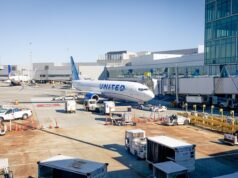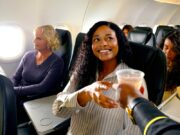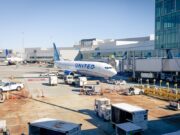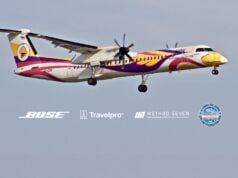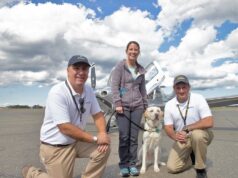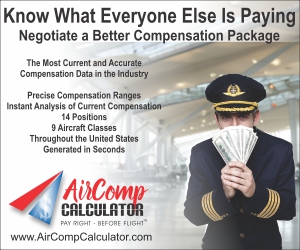
An airline’s senior pilots are among its most valuable assets, with the greatest average longevity and the experience, knowledge, and expertise to fly safe, standard, and compliant aircraft for millions of passengers who entrust them into their care. Their years of leadership and professionalism afford them the utmost respect and admiration from their employers and peers alike, for it is these senior pilots on whom they rely to apply a lifetime of critical thinking skills and operational efficiencies that yield the ultimate in customer satisfaction on every journey.
If you are a senior pilot, you may recognize that crewmembers no longer ask how long you have been with your company – instead, they ask, “How much longer before you retire?” In fact, you have had the retirement calculator running for years and may happily respond to these queries with the date, down to the exact number of months, days, and minutes until you retire. But who’s counting, right?
Pilots approaching retirement consider their waning years to be bittersweet, as the culmination of decades of service collides with the reality of the FAA’s mandatory retirement age. This rather unapologetically leaves pilots adrift at the stroke of midnight on their 65th birthday, no longer able to retain the stature and livelihood they maintained for decades. As a retiring pilot, you have certainly been looking forward to the time off for the trips you have been planning to take, grandchildren to visit and all the projects and hobbies that have been patiently waiting for your well-earned leisure time. But there’s no escaping it – hanging the uniform up for good and saying goodbye to wake-up calls, bunk rests, favorite international destinations and an entire network of work family can leave you with a loss of identity the minute you taxi through those watery arches and set the brakes for the last time. And ready or not, the search for a new normal starts now.
It is said that eighty is the new sixty. Our average life expectancy has far eclipsed what yesteryear’s retired captains experienced, and today’s pilots fully anticipate enjoying many additional years of productivity beyond their time on the flight deck. But just what types of opportunities are available to extend your career and stay connected to your time in the air after being grounded?
As retiring pilots, you have faced untold challenges over the course of your career. Now, as you prepare to depart, a new challenge has appeared over the horizon. Predicted for decades and finally a reality, the pilot shortage has firmly taken hold. The limited pool of qualified applicants to fill the main seat has not grown to keep up with demand, a trend that is likely to last for decades. Many carriers within the industry are currently experiencing unprecedented attrition, with some carriers finding as much as half of their pilot workforce retiring in the next five to ten years. The COVID-19 pandemic exacerbated this shortage, as a significant number of airline pilots chose early retirement packages to forgo internal furloughs and other layoffs caused by the worldwide travel shutdown. A 2019 Oliver Wyman1 poll of flight operations leaders showed that 62 percent of respondents listed the shortage of qualified pilots as a major risk to their operation. For the first time ever, airlines are struggling with a drought of qualified applicants and insufficient training resources to meet renewed air travel demands. This leaves most operators at the mercy of limiting their own growth by their ability to fill the most important seats on the aircraft.
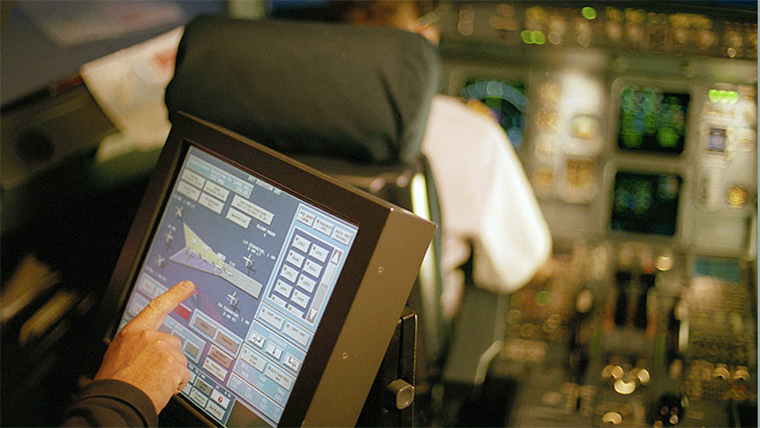
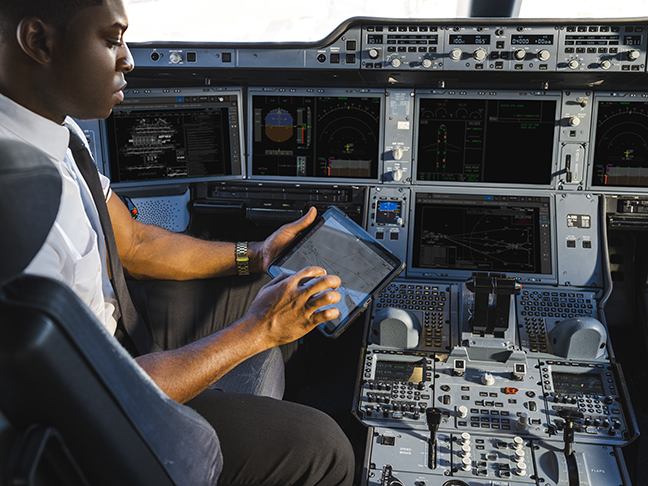
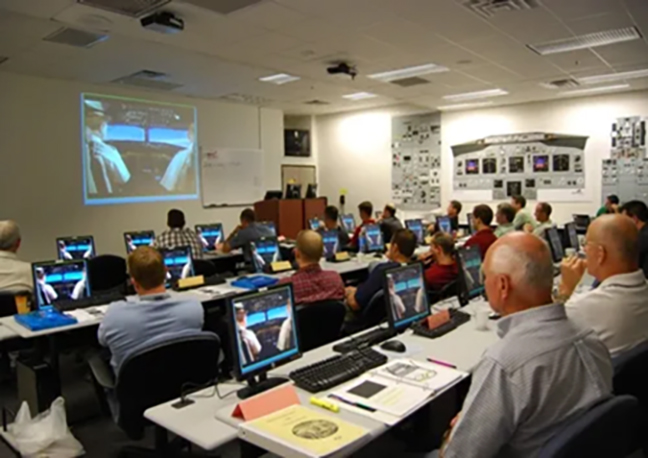
As the industry at large braced for the negative impact these shortages caused, Delta Professional Services (DPS) saw opportunity. With existing pilot rosters already stretched thin covering rebounding flight schedules, drawing more pilots away from line flying to conduct training for new recruits, and flight crew currency threaten to make the shortage even worse. Rather than leaving airlines to train with less experienced instructors or through unproven third parties, DPS emerged with a solution that allows the largest growing pool of experienced pilots – our retirees – a chance to continue serving well past their 65th birthdays by training the next generation of aviators.
Delta Professional Services (DPS) is an instruction-services company serving as a strategic partner for major airline carriers, providing supplemental instructors for 14 CFR Part 121 Certified Air Carrier pilots in both full-flight simulators and flight-training devices. The company, which spent years as an internal program before standing up as a wholly-owned subsidiary of Delta Air Lines in 2019, draws from a large workforce of retired airline pilots from major air carriers throughout the country to create a deep bench of highly qualified and experienced instructors allaying the need to pull active pilots from the line of duty in a time when every carrier is already stretched thin.
These instructors’ years of practical flight experience not only make them exceptionally well-suited for the task of conducting relevant, world-class training, but offer a welcome career extension to retirees who wish to dedicate their talents towards a renewed purpose. By leveraging decades of real-world flying, retiring pilots bring focused expertise and a realistic view of what it takes to fly at the highest proficiency standards. This is what lies at the heart of the DPS core belief – the best training can only be achieved by providing new pilots with instruction from those who possess the most relevant experience, the most qualified subject-matter expertise, and the greatest ability to impart unparalleled wisdom.
Of course, there is nothing new about former pilots transitioning to teach following retirement. DPS however, brings a key difference to the space in its experience from within the industry. The company is uniquely positioned, through its ownership by Delta Air Lines, to not only create a new path for retiring pilots looking to extend their careers into the future, but also to reward them for their years of faithful service and personal sacrifice. To that end, DPS has worked hard to cultivate a culture of mutual respect among its instructors and holds its staff of retirees in the highest esteem as its most valuable resource. It is because of this dedication to honoring the most prestigious flying job in air travel that inspires DPS to provide much more than just a continuing paycheck, but an enviable benefits package that makes working for DPS a desirable “next chapter” in a pilot’s career.
DPS President Marc Lippens believes that the way to secure a pipeline of qualified pilots in the years to come is to focus on the people, not the problems. For this reason, DPS offers retiring pilots continuing benefits including commuter and personal travel, medical, dental and vision insurance, 401k and profit sharing, the ability to work with multiple clients, fleets, and more. DPS also individually vets candidates to ensure that every instructor is the best of the best. “Our success is a result of the commitment of our team members to not only meet but exceed our customers’ expectations,” said Lippens. “The foundation of this success is a company culture of innovation, engagement, and accountability. Every one of us has the responsibility to bring new ideas forward, to value and respect one another, and to hold ourselves and each other accountable to do the right thing.”
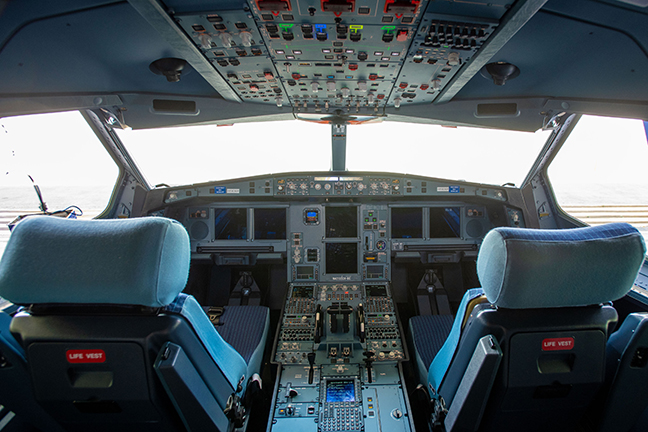
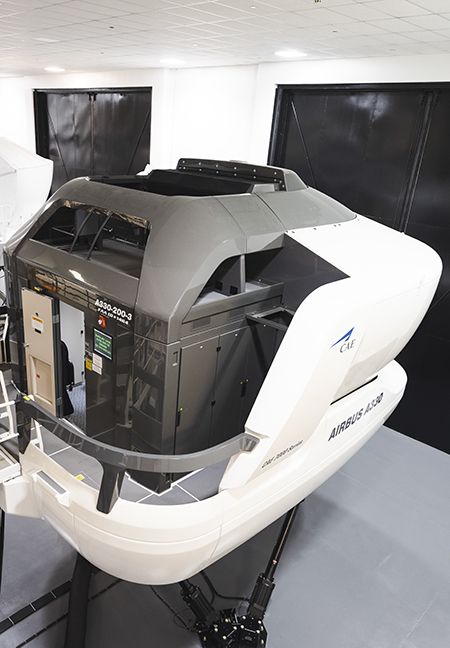
This strategy is paying off for DPS, as the company emerges as part of a new landscape that sees the industry returning to life after an unprecedented interruption. In 2022, DPS nearly doubled the size of its existing workforce, posted record-setting revenues, and created a cadre of corporate expertise within their division that leverages years of industry experience. Together, they have devised a solution for a more immersive and comprehensive training platform focused on serving major airlines and operators across the globe. Training by DPS professionals is currently conducted throughout the United States and will soon include multiple global training centers making the company’s training services accessible to most major hubs.
Boasting a list of instructional-services clients that includes The Boeing Company, Delta Air Lines, FedEx, Hawaiian Airlines, and other valued carriers, DPS has established itself as the premier vendor in the supplemental flight instruction space. Additionally, DPS offers one of the industry’s top ATP-CTP programs with an on-campus, major airline experience through the FAA Part 142 Delta Aircrew Training Center certificate. To date, DPS has graduated more than 2,000 ATP-CTP students and currently offers courses in Atlanta and Miami.
“DPS begins every partnership discussion from the basis of ‘no degradation in training’ ensuring the highest standards of quality and delivery,” remarked Lippens. “Using less experienced pilots for training could potentially compromise the quality of the instruction and the resulting training, and ultimately costs more in the long run at pilot-scale pay. This should give our partners confidence that pilots who receive training from our instructors arrive ready for the job and prepared for anything in the operation.”
Fulfilling its goal of becoming the worldwide leader in commercial aviation training is no easy task – especially for a well-established but little-known company – but it is one that DPS is well equipped to handle. DPS employs experienced instructors on every major commercial aircraft (as well as most regional equipment), a leadership team with a combined 100+ years of experience in flight training and standards (with major U.S. carriers), and talented professionals with years of experience recruiting and sourcing the best of the best in aviation. This incredible pool of talent, coupled with the backing of one the top commercial airlines in the world, makes DPS an easy decision for retiring pilots and clients alike.
While DPS may be an emerging player in the aviation training space, it is anything but conservative when it comes to directly compensating its instructors. Training with DPS is paid in an industry-leading manner against other providers, with cumulative incentive pay available for working late nights, weekends, holidays, special events, short calls, and exceeding 17 events in a calendar month. Providing positive-space travel (for those who do not live locally), as well as full reimbursement for travel costs, makes DPS’ program extremely competitive for the commuting instructor, but these perks do not come in lieu of excellent base compensation. In 2022, DPS was able to provide an 8% pay increase across the full-rate scale and removed incentive caps, creating an additional 18% in earning potential for the average instructor. In 2023, another 5% pay-rate increase followed along with the commitment to provide instructors with every tool they need to be successful, both professionally and financially.
Captain (ret.) Bob Skinner, DPS Vice President – Operations, longtime airline pilot and flight training executive, does not see financial incentives as the most important benefit that DPS offers its staff of instructors. “The most important value DPS provides comes from giving retiring pilots a way forward that helps them to retain the positive self-identity and sense of purpose that they have come to rely on at a time when they could feel left behind as they depart their prestigious positions and their replacements join fleets around the world,” Skinner says, exemplifying the valuable insight that only a retired pilot can bring. “Being a pilot is something that is felt rather than said. And DPS is committed to making sure that they feel right at home even when their time on the flight deck ends. Simply put, DPS is a great place to work.”
To seasoned captains approaching retirement, DPS wants you to know that your contributions to aviation are far from over. Marc Lippens believes that this experience – YOUR experience – is the path forward to combating the pilot shortage and giving retiring aviators the respect and support you deserve.
“We want to foster a company where the end of a pilot’s time in the air is followed by a continuation of their aviation career,” Lippens avows. “To be the best, you have to learn from the best, and we want these incredible people who have given years of service to their job to know that we still believe they are the best in the world at what they do.”
DPS is a wholly owned subsidiary of Delta Air Lines, Inc. and is headquartered at Delta Air Lines main campus in Atlanta, with additional training locations in Miami, Memphis, and Orlando. Those seeking to work as instructors must have an Airline Transport Pilot certificate with Aircraft Multi-Engine Land class rating, have served as a pilot at a 14 CFR Part 121 Certified Air Carrier with a minimum of 2,000 accrued hours as a Pilot in Command. One can apply as early as six months prior to retirement but should apply no later than 36 months after retiring. The company also lists “preferred, but not required” qualifications including previous experience as a flight-simulator check airman or line-check pilot at a 14 CFR 121 Certified Air Carrier and Aircraft Type Rating in aircraft operated by Delta Air Lines or other DPS clients.
For more information on joining the DPS Team contact DPSrecruiting@dps.delta.com.
For more information on the DPS ATP-CTP experience visit the Delta Aircrew Training Center website at atpctp.delta.com.:




























































